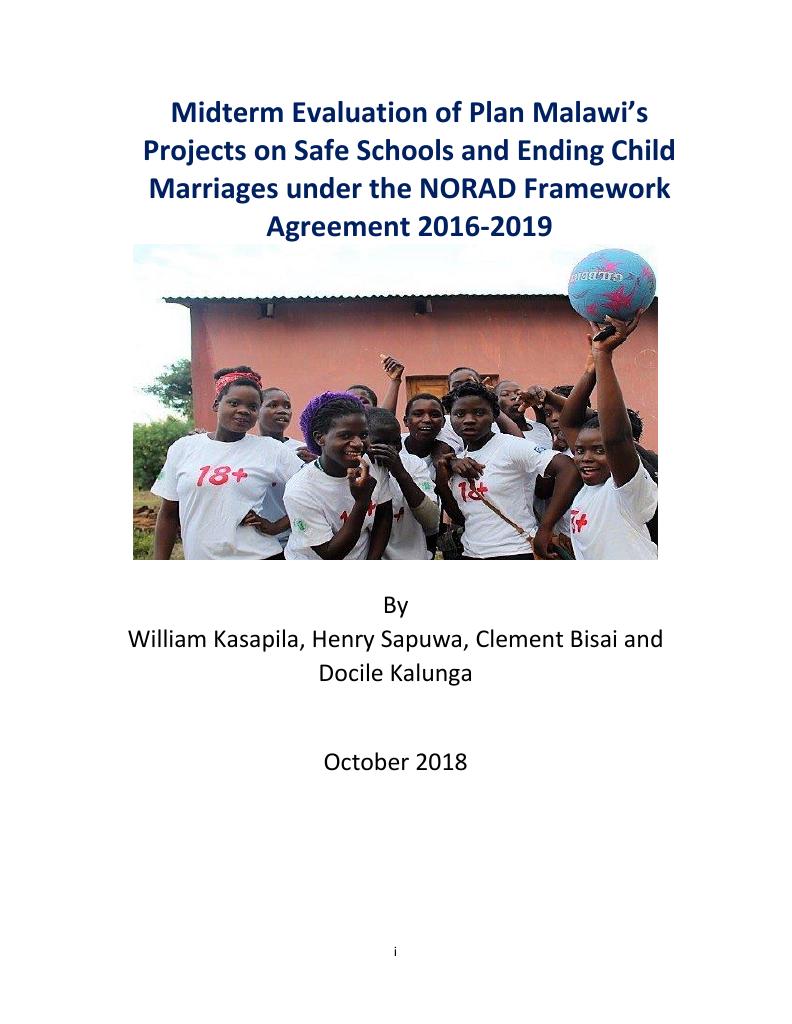Studie
Midterm Evaluation of Plan International Malawi’s Projects under the Norad Framework Agreement 2016-2019
The State of the World’s Children report of 2016 by UNICEF lists Malawi as one of the 10 countries in the world with highest rates of child marriages. Approximately 1 in 2 girls marry by the age of 18 and close to one third of adolescents (29%) aged 15-19 begin bearing children and drop out of school. Another study by UNFPA in 2010 exposed that 80 percent of girls get married by the age of 18 in Mulanje alone and 90 percent are already sexually active before this age. Most Malawian children lead very difficult lives often beset by chronic poverty and a dearth of opportunities. In February 2017, the Malawi Parliament amended the Constitution and raised the age of marriage from 15 to 18 years to end Child, Early and Forced Marriages (CEFM). School dropouts in the country are exacerbated by recurrent Cyclone Banski, El Niño and other weather-related floods and droughts that destroy school infrastructure and make them unconducive for learning. Children with disabilities and from minority groups are the worst affected. Environmental degradation and climate change are the main drivers for poor weather conditions. With funding from Norad and in partnership with five local Civil Society Organisations (CSOs), Plan International Malawi (PIM) is implementing the 4-year 18+ Ending Child Marriage project in Mulanje and the Promoting Safe Schools and Inclusive Project in Mulanje, Chikwawa and Karonga to complement government’s efforts. The Mid-Term Review (MTR) assessed the degree to which planned outcomes around the four projects are on course to achieve the targeted results. The key objectives of the MTR was to assess the projects for the following: relevance, effectiveness, efficiency, project management and sustainability. The MTR also assessed the project’s performance on cross cutting issues; gender equality, disability inclusion, unexpected results, added value and participation. The two projects aim to end CEFM and keep children in schools that are inclusive, safe from natural disasters and violent free.
